Welcome to take Beijing train, or why I like the subway system in Beijing.
The single-ride train tickets here cost about fourteen cents. They’re flexible and plastic and about the size of a credit card, hard to lose, easy to find in a pocket. Since they contain an electronic sensor, you can press the card against a scanner at the ticket wicket without having to stop and impede the current of human traffic. Also, the subway system reuses the cards, so you have to relinquish yours (sad) before you leave the station unless you have a rechargeable train pass. The greatest thing about these cards is that each one of them has a map of the entire subway system printed on the back, so as long as you know where you’re going, you’re never lost.
And buses are good, too.
But so far I’ve found taking taxis and riding buses from church to church on Sunday mornings and afternoons to be the best way to go. A few buses run up and down Di’Anmen Dajie, the long road that passes by the Kuanjie church. My translator, a linguistics graduate student at Tsinghua University, and I hopped on a yellow bus after leaving the Haidian Christian Church early Sunday afternoon and chatted about the service we’d observed, and in particular about the woman sentry posted outside of the elevator on the third floor. The petite older woman was sitting on a chair outside of the offices, probably to spare the church officials and preachers from curious visitors like me. I didn’t understand much of what she was saying to my translator, but eventually she led us to the office and introduced us to a preacher.
As we were leaving the Haidian area on the bus, my translator, who is not religious, turned to me and said that the first thing the woman had said to us when the elevator doors opened and we stepped out was, “Do you believe?”He remarked that she and other religious people that he’d met in Beijing had a mystical or secretive aspect to them, which I find to be true about religious people anywhere. In any case, looking for the Kuanjie church, we’d taken several wrong buses and retraced our steps over and over again on the sidewalk in the heat.
A bus traffic guide pointed us in one direction, a passerby in another, and the address I’d jotted down in my notebook wasn’t much help either. According to my translator, these bus traffic guides tend to be people who were laid off from their jobs and hired by the government, whether temporarily or permanently I couldn’t say. They tend to know their way around the area fairly well, and it turned out that the address I’d found on a website was wrong. Following the guide’s directions we finally made it to the church and found that, sadly, the wrought-iron gates were locked.
But the food is better.
It was about six in the evening by then. My translator introduced me to a narrow restaurant hidden in a small lane by Beihai where we were served a huge bowl of white fish marinated in la-yu, a red, hot spicy oil, and a dish of woodear mushrooms [photo to come], the combination of which redeemed an otherwise slightly unproductive afternoon.
-Mary
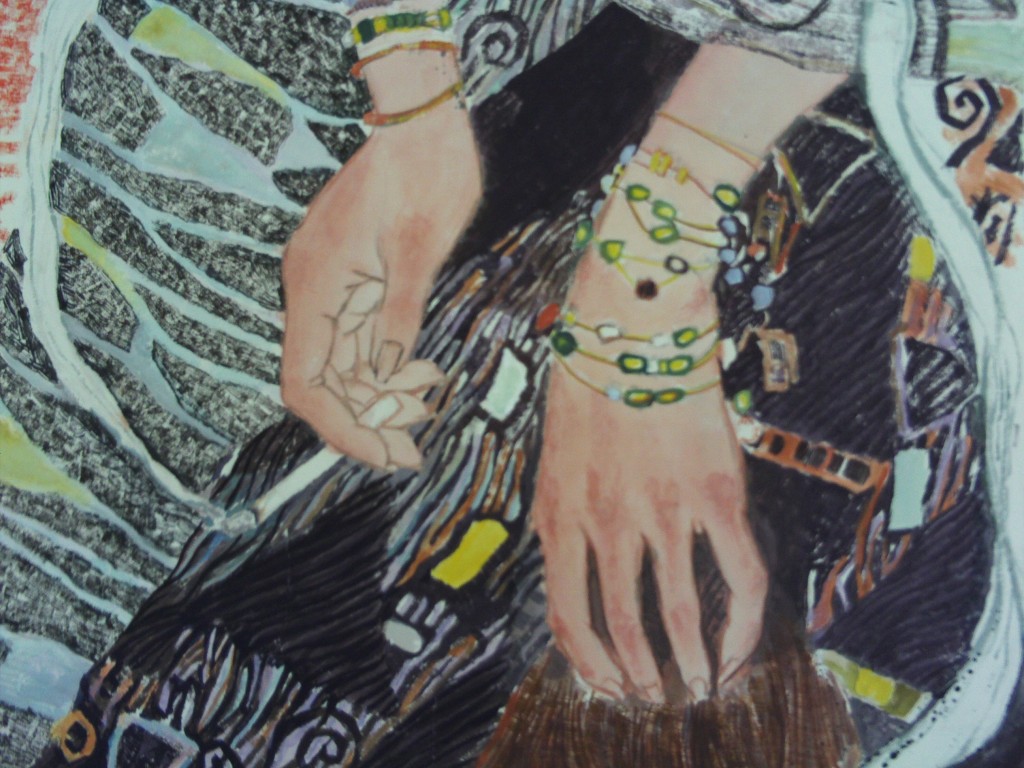
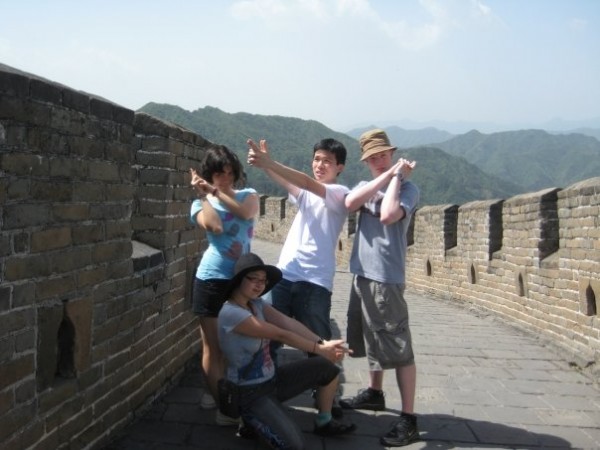
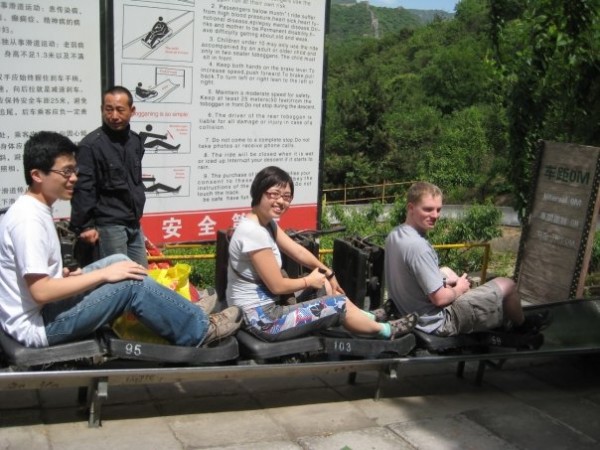

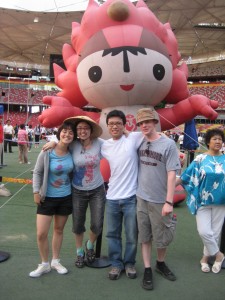
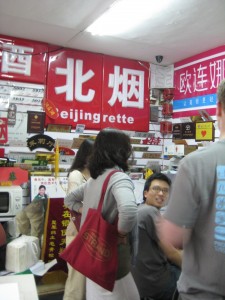 After a 16 hour plane ride, getting my temperature checked twice for Swine Flu and walking through heat detectors, I arrived in Beijing exhausted but excited. My groupmates Amanda, Mary, Will, Ben and our advisor Professor Huang were already at the Piao HOME Inn in Wangfujing, at the center of Beijing.
After a 16 hour plane ride, getting my temperature checked twice for Swine Flu and walking through heat detectors, I arrived in Beijing exhausted but excited. My groupmates Amanda, Mary, Will, Ben and our advisor Professor Huang were already at the Piao HOME Inn in Wangfujing, at the center of Beijing.